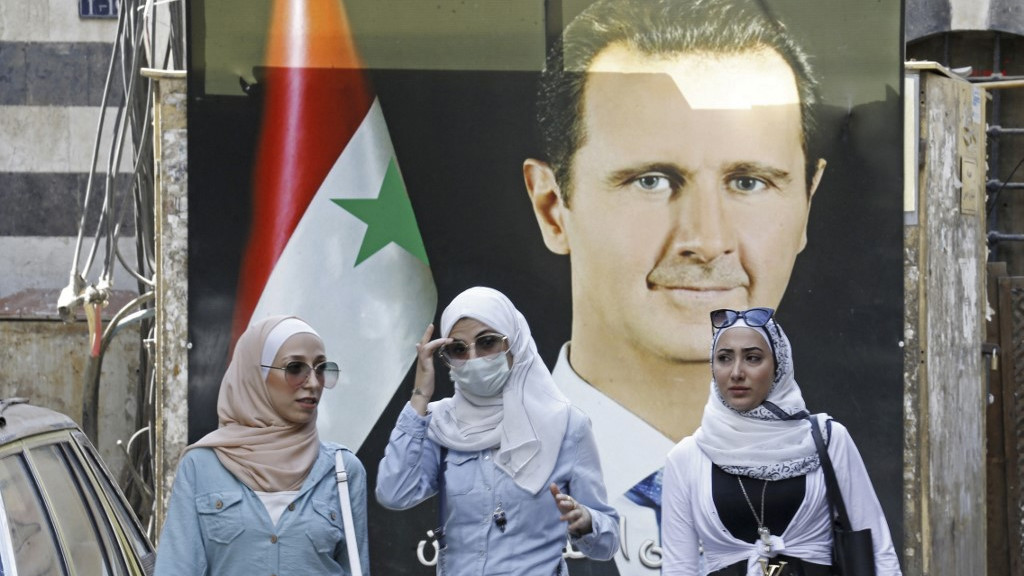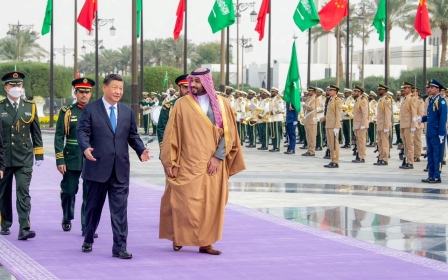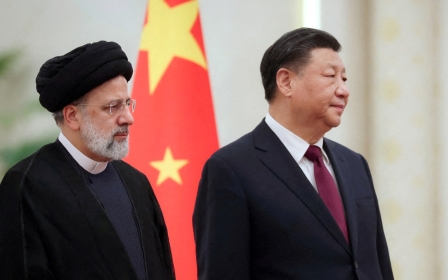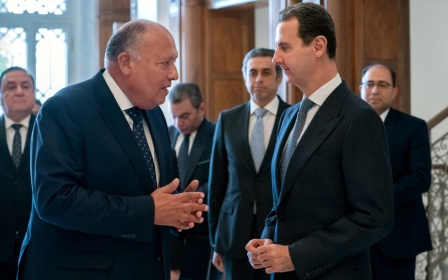Syria war: After Iran-Saudi deal, could China be the key to peace?
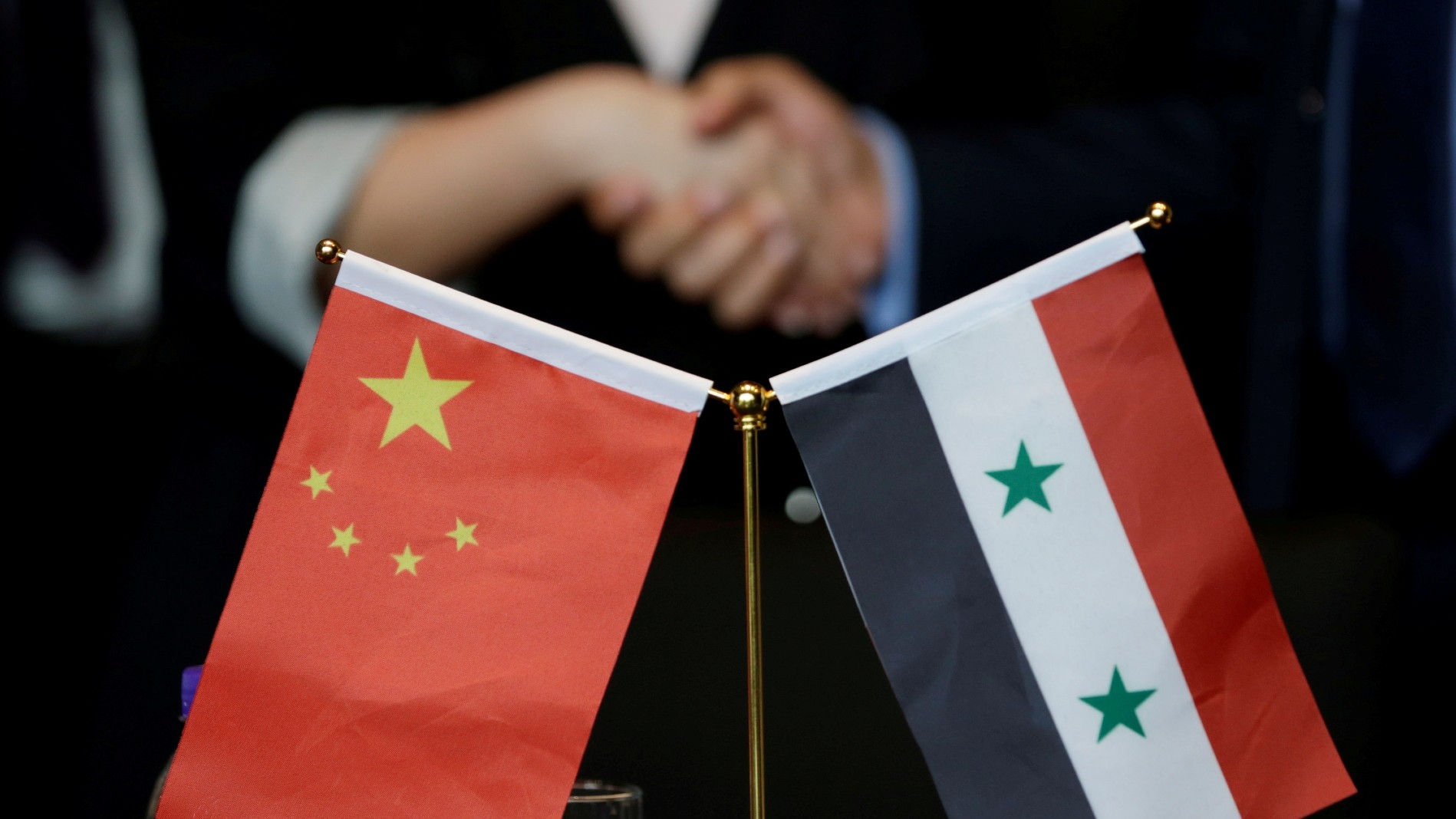
Earlier this month, China brokered a deal to restore diplomatic relations between Saudi Arabia and Iran for the first time since 2016, aiming to settle a longstanding bilateral dispute.
While it is too early to determine whether this will lead to a complete thaw in the four-decade rivalry between Riyadh and Tehran, an immediate beneficiary of the Chinese-led initiative is Syrian President Bashar al-Assad, whose diplomatic clout in the region has been further strengthened.
Within days of the deal with Iran, the Saudis announced a restoration of diplomatic ties with the Syrian government, and Assad took another trip to the UAE, following his visit to Oman a month earlier. Indeed, Assad has slowly but surely re-emerged on the diplomatic scene, despite US pressure on the region to isolate Damascus.
Now, as China takes a more assertive economic diplomacy role in the Middle East, Syria remains key to Saudi Arabia’s desire to cool regional tensions.
Saudi Arabia presented the last obstacle to Syria’s return as a key player in the Arab world - a thaw that began with a hug between the Bahraini and Syrian foreign ministers at the United Nations in 2018.
New MEE newsletter: Jerusalem Dispatch
Sign up to get the latest insights and analysis on Israel-Palestine, alongside Turkey Unpacked and other MEE newsletters
While Riyadh has watched from the sidelines as other Arab countries embraced Damascus, it has finally joined the fray, perhaps on the back of the Chinese- and Russian-led realignment of the Middle East.
Two years ago, I wrote an article for Middle East Eye about the history of Saudi-Syrian ties, and the centrality of this relationship with regards to stabilising Lebanon. Despite major differences, they have always managed to maintain an amicable working relationship, which peaked during their anti-Saddam alliance in the first Gulf War, and again when Riyadh welcomed Assad several years after the 2005 assassination of former Lebanese Prime Minister Rafik Hariri.
The time has now come again for another warming in Saudi-Syrian relations.
Flexing muscles
Basem Shabb, a former Lebanese MP and close adviser to former Prime Minister Saad Hariri, has written about how Syria has quietly upped its game in mainstream Lebanese politics, strengthening support for groups that back the Syrian regime over groups pushing Iran’s main agenda in Lebanon.
It is important to note that Syria has always pursued its own interests in Lebanon, rather than those of Iran.
Syria does not always toe Iran’s line, especially with regards to Lebanon and Iraq. It is this aspect of Syria’s policy that appeals most to the Saudis.
A US State Department assessment in 2020 raised concerns that Damascus was regaining its pre-eminent place in Lebanese politics. The Saudis, who washed their hands of Lebanon a few years ago, would welcome Syria’s help to stabilise the country - especially after the delay over an Egyptian-led gas deal to which Syria remains the key. Here, China’s emergence as an important regional player offers another alternative, shifting away from the era of US hegemony.
The Chinese have been eyeing Lebanese ports as part of Beijing’s regional investment strategy, and China has welcomed the Saudi-Syria rapprochement, arranging a timely meeting in Damascus to further its own Syria diplomacy. Syria was the first conflict in which China flexed its muscles at the UN Security Council, helping Russia to veto almost all major US-led resolutions over the past decade.
In light of the Iran-Saudi deal, Syria will be a key contested region - and Chinese economic diplomacy could work to Riyadh's advantage
I wrote in 2017 about how China for the first time took an active role in a Middle East conflict in terms of non-kinetic military operations in Syria, as it participated in the Astana process and other venues to make sure it was on-side with Damascus, pursuing an end to the conflict. Chinese economic interests in Syria date back to 2004, with key strategic areas around Syria and Lebanon ultimately becoming part of its Belt and Road Initiative.
In light of the Iran-Saudi deal, Syria will be a key contested region - and Chinese economic diplomacy could work to Riyadh’s advantage. Syria analyst Camille Otrakji says the current Saudi leadership has shown greater agility than its predecessors, telling MEE: “It is possible that after years of striving to establish an Iran-free regional order, the Saudis realise that they need a new strategy … The Saudis and the Turks both have come to the conclusion that to restore relative normalcy and stability, [the best option] is to step back from the Syrian playing field.”
With the Saudis joining the Beijing-led Shanghai Cooperation Organisation (SCO) formally on Wednesday, it also shows a further drift by the Saudis into a non-aligned status rather than just the US sphere of influence, which they have been in since the founding of the kingdom.
At the heart of the Saudi-Iran deal is economic stability, with both the Chinese and the Saudis proposing investments in Iran. Syria is the key arena where Iran and Saudi Arabia have clashed over the past decade, and despite mutual mistrust, the Saudis have historically been able to iron out their problems with Damascus.
Today, with the US distracted by Ukraine and having no coherent Syria strategy, Saudi Arabia is welcoming Chinese efforts to help end the regional conflict.
The views expressed in this article belong to the author and do not necessarily reflect the editorial policy of Middle East Eye.
Middle East Eye delivers independent and unrivalled coverage and analysis of the Middle East, North Africa and beyond. To learn more about republishing this content and the associated fees, please fill out this form. More about MEE can be found here.



